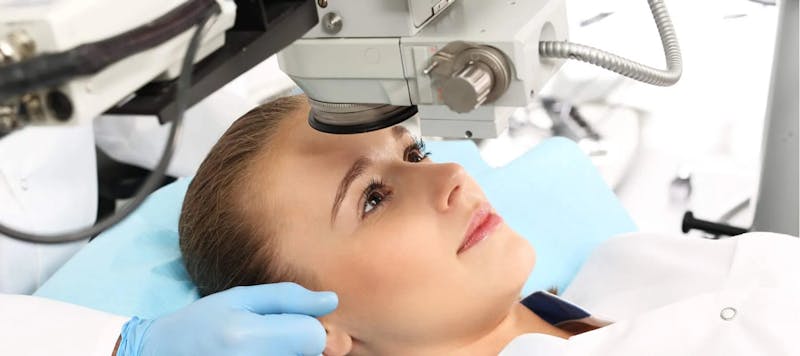
Your eyes are two of the most sacred organs located in the entire body, despite many individuals taking them for granted on a daily basis. They not only provide us with the power of sight, but they're some of the most stunning and beautiful structures that shape who we are and what we're capable of.
As important as our eyes are, they're subject to a wide range of issues, injuries, complications, disorders, and diseases that compromise our ability to see properly. This is the case for anyone suffering from a retinal tear or detachment, which occurs in nearly 10% of the population.
What Are Retinal Tears?
The retina is the thin lining in the back of the eye, which allows us to see. It's normally attached to the gel-like substance inside the eye, also known as the vitreous. When the vitreous gel starts to tug away at the retina, it can cause the retina to tear. Of course, this can also cause bleeding in the eye if there are blood vessels present.
If not treated properly and in a timely manner, a retinal tear can have a serious impact on an individual's long-term vision -- especially if it leads to retinal detachment. Don't worry, the good news is your local eye doctor, Dr. Omar Shakir, can safely treat a retinal tear with laser surgery (and cryopexy, in some cases).
So, How Long Does It Take An Eye To Heal After Laser Surgery For A Retinal Tear?
For those that have recently undergone laser surgery for a retinal tear or detachment, the healing process could take anywhere from one week to four weeks. It normally takes a full week for the laser treatment to fully seal the tear and prevent detachment, but things can still go wrong once sealed.
That's why it's extremely important to limit your daily activity and avoid doing anything strenuous up to a month post-surgery. Not only will this give your eye ample time to recover and heal properly, but it'll also reduce the risk of experiencing another retinal tear or further eye damage in the meantime.
After your surgery, there's a chance your eye surgeon gives you eye drops to prevent infection. They might also ask you to wear a patch over your eye to avoid unwanted exposure to the eye. It's normal to experience blurred vision, redness around the eye, and inflamed or swollen eyes post-surgery.
Improving Your Recovery Time at Home
Returning home after undergoing laser eye surgery for a retinal tear can be scary and stressful, but your eye surgeon will give you clear and distinct directions for safely continuing your recovery. One of the best things you can do for your eye health and symptoms is to follow these directions closely.
As you return home, you'll likely notice flashing lights, floaters, loss of peripheral vision, and many other vision problems or vision changes during recovery. If you follow the treatment and recovery plan properly, these vision symptoms are only temporary and will improve as time continues.
Things You Should Focus On At Home
To avoid the issue getting any worse following laser eye surgery, here are some things Dr. Omar Shakir may need you to do on your own time:
- Avoid quick head movements and avoid doing anything strenuous, such as lifting, cleaning, gardening, etc.
- Depending on the work you do, you should consider taking anywhere from 2-4 weeks off of work.
- Only drive when your vision allows you to.
- While you can eat your typical diet, you should focus on low-fat foods if your stomach is upset.
- Talk to Dr. Omar Shakir about continuing medication you normally take or when adding a new medicine to your routine.
- Make sure you're properly using the eye drops given to you after the procedure.
- To ease any swelling around the eye, place a cold pack on your eye for 20 minutes at a time.
- When showering or washing your face, try extra hard to not get soap in the eyes.
- Sunglasses help during the day, especially if not wearing a patch or protective covering.
- During laser treatment, your surgeon might use a gas bubble to keep the retina in place. If so, make sure you're following Dr. Omar Shakir's directions when keeping your head in place.
In the weeks following your surgery, you should monitor your vision and area around the retinal tear to avoid long-term vision loss. If you experience any symptoms of a retinal tear or symptoms of a retinal detachment, it's time to schedule a follow-up with Dr. Omar Shakir immediately.
When Should You Call Your Ophthalmologist?
Recovering from a retinal tear or retinal detachment isn't easy. You'll be asked to face a large amount of discomfort in the days, weeks, and even months following the surgery as the vitreous gel reattaches itself to the retina in the back of the eye.
No matter how good of a job your surgeon does, this isn't the end of the road for you. While your vision may be fine, patients can't get complacent following the procedure -- especially if they want to avoid eye problems in the future.
Here are some of the most prominent reasons why you might need to schedule a follow-up appointment with Dr. Omar Shakir:
- If you start to experience an eye infection, contact your doctor immediately.
- If you experience eye pain, set up an appointment with your eye doctor.
- If you experience continued floaters, flashing lights, or vision changes, contact your ophthalmologist.
- If you experience blood clotting in your leg, call your eye doctor.
At Coastal Eye Surgeons, we believe everyone should have access to the best eye care possible. A retinal tear or retinal detachment can wreak havoc on anyone's life, but that doesn't mean you can't repair the retina and vitreous gel with highly-effective laser treatment by a surgeon.
Contact your favorite local ophthalmologist today to learn more about your treatment options or to schedule a comprehensive eye examination. We can't wait to see you thrive with those beautiful eyes of yours!
Contact Us Today!
Check out our article on What Foods To Avoid If You Have Glaucoma


